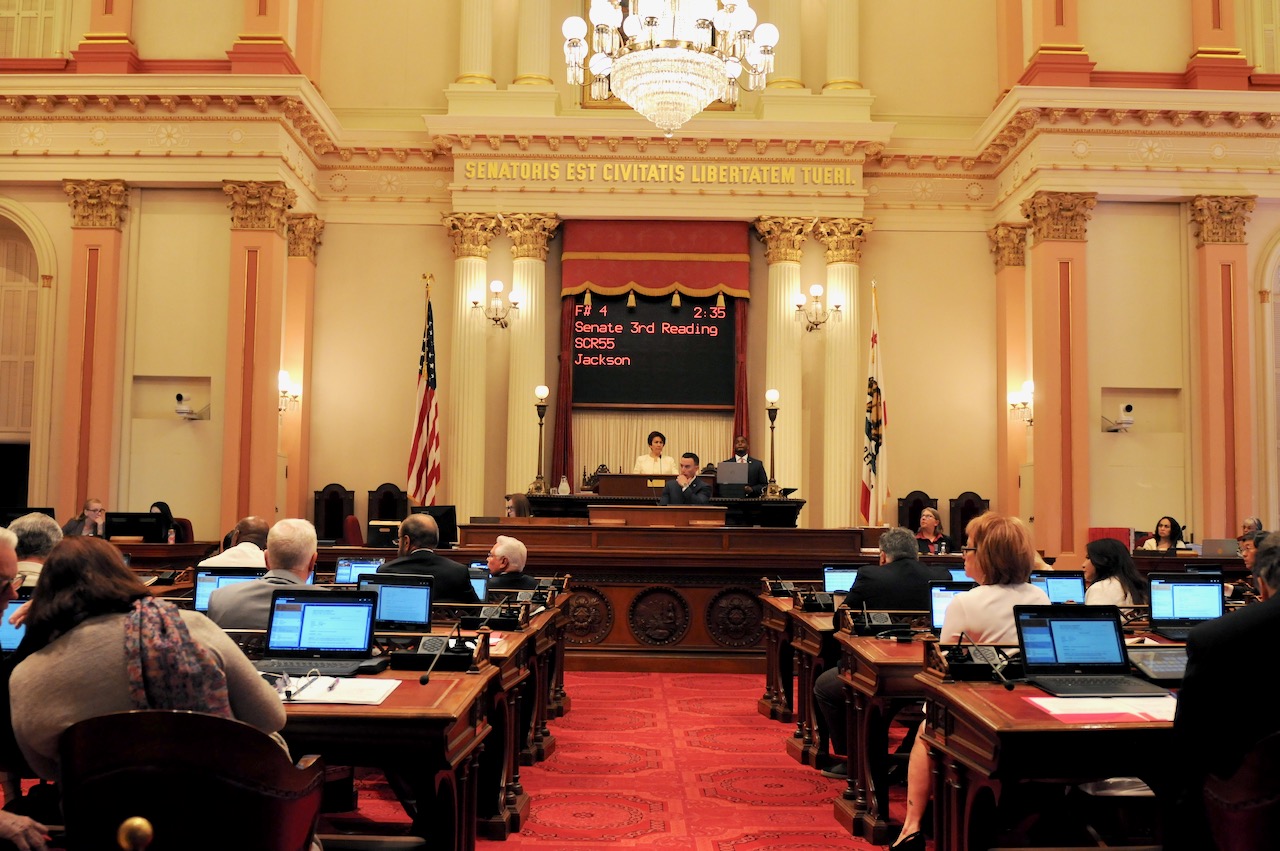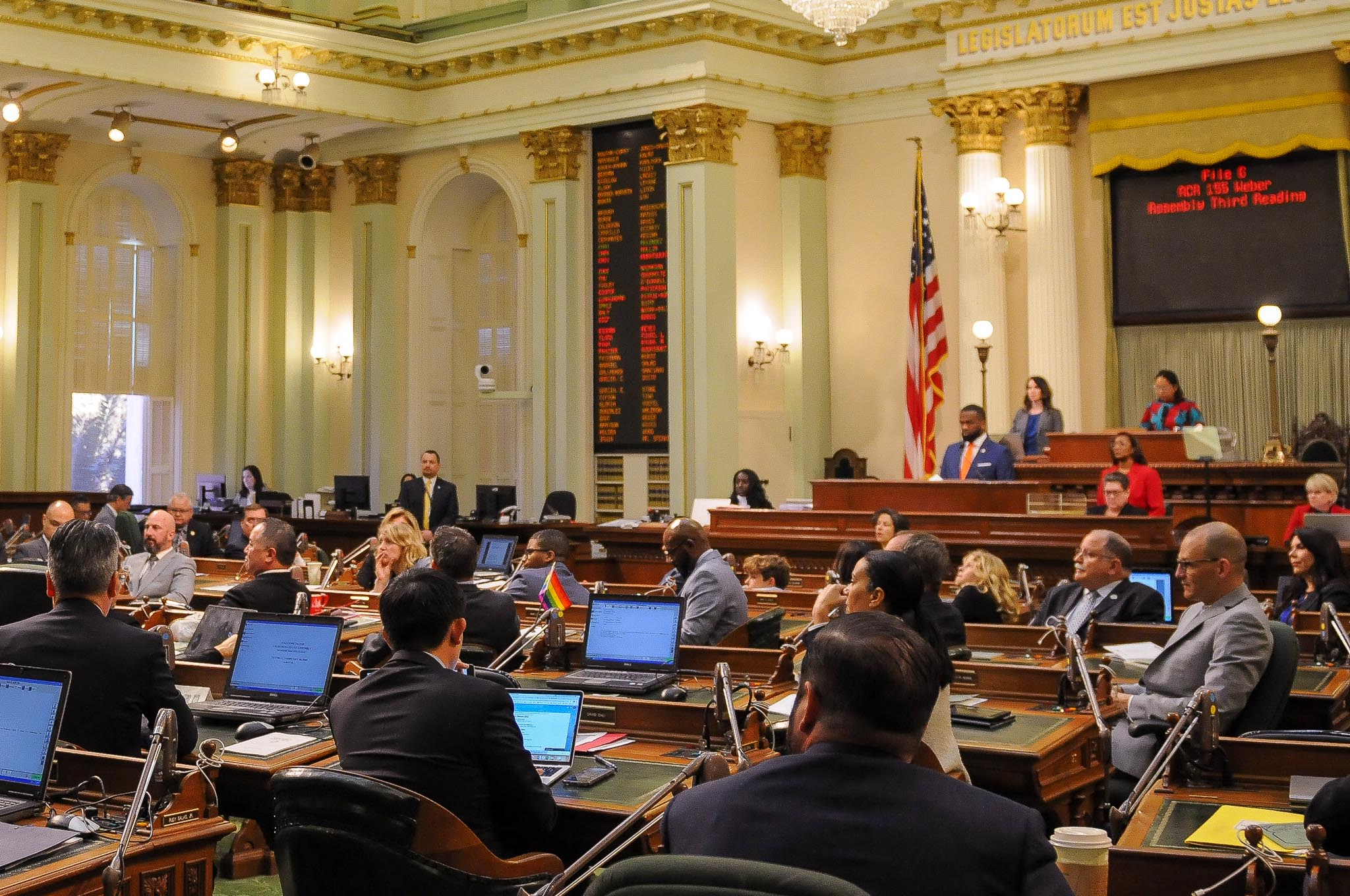
California State Capitol. (Photo: Kevin Sanders for California Globe)
Deferral Clauses in California Legislation
These deferral clauses do not appear very often in California
By Chris Micheli, October 9, 2022 8:19 am
What is a “deferral clause”? Basically, a deferral clause is used when one bill “defers” to another bill concerning which provisions will take effect. The following is an example from a recent bill:
Any section of any act enacted by the Legislature during the 2022 calendar year, other than a section of the annual maintenance of the codes bill or another bill with a subordination clause, that takes effect on or before January 1, 2023, and that amends, amends and renumbers, amends and repeals, adds, repeals and adds, or repeals a section that is amended, amended and renumbered, amended and repealed, added, repealed and added, or repealed by this act, shall prevail over this act, whether that act is chaptered before or after this act.
This language is intentionally broad in its application. The language initially provides that it applies to “any section of any act” that enacted at any time during the entire calendar year. Next, it creates only two exceptions – the annual maintenance of the codes bill, or a bill with a subordination clause.
And, finally, this language requires that the section(s) of any act, regardless of the timing of enactment, will be the one that takes effect. In essence, this provision overrides the Government Code provision that provides that the last enacted bill takes effect, overriding any conflicting statutory provisions from an earlier enacted bill.
The following example is how a floor analysis explained this language:
This bill includes an “all purpose” yielding clause that avoids any double jointing problems that might otherwise occur.
The following is an example from a recent bill of a description of the deferral clause as explained in the Legislative Counsel’s Digest:
This bill would enact various conforming and technical changes related to another bill, AB ___, which recodifies and reorganizes the California Public Records Act. This bill would only become operative if AB ___ is enacted and reorganizes and makes other nonsubstantive changes to the California Public Records Act that become operative on January 1, 2023. The bill would also specify that any other bill enacted by the Legislature during the 2021 calendar year that takes effect on or before January 1, 2022, and that affects a provision of this bill shall prevail over this act, except as specified.
As the Digest explains, the deferral clause allows any other bill, with specified exceptions, that conflicts with any section of this bill will prevail over this bill’s conflicting provision(s).
The other term that is used in these referral clauses is reference to a “subordination clause.” What is that? Generally, a subordination clause is a clause that provides that the current bill will take priority over any other bills made. “Subordination” basically means to yield priority.
Sometimes these deferral clauses are combined with contingent enactment language, such as the following example from a recent bill:
This act shall only become operative if Assembly Bill __ of the 2021–22 Regular Session is enacted and becomes operative on January 1, 2024, and that bill would reorganize and make other nonsubstantive changes to the __, in which case this act shall also become operative on January 1, 2024.
These deferral clauses do not appear very often in California, just a handful of bills each session. But bill drafters should be familiar with them.
- Committee Versus Floor Lobbying - March 1, 2026
- Fishing Traps in California - March 1, 2026
- What Type of Lobbyist Do You Want to Be? - February 28, 2026





One thought on “Deferral Clauses in California Legislation”